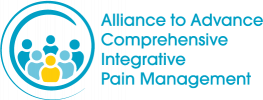Spotlight: Sharad Kohli
 Access to Comprehensive Integrative Pain Management for People in the Safety Net
Access to Comprehensive Integrative Pain Management for People in the Safety Net
An interview with Sharad Kohli, MD
“Most of my adult patients are uninsured, and thus can’t easily get imaging, see an orthopedist, rheumatologist, or pain management specialist, can’t go to physical therapy, and wouldn’t normally have access to acupuncture, chiropractic, massage, yoga, etc.
As a result, most of our practitioners can’t prescribe effective non-pharmacologic treatments that are aligned with current recommendations and guidelines from Health and Human Services, the Centers for Disease Control, American College of Physicians, and others. We essentially did not have any choice but to create our own pain management program.”
Spotlight: Duke and AACIPM are Aligned in Identifying Clinical Examples of Integrated Pain Management (IPM)
AACIPM unites many stakeholders who are leading important work to advance whole person oriented, integrative and integrated pain management. This includes Duke University where many of their leaders are focused on changing the paradigm in how pain management is being provided.
“Poorly managed pain, a key contributor to opioid misuse and use disorders, continues to be a significant public health problem in the time of Covid-19. Multidisciplinary integrated pain management programs can significantly reduce the burden of pain, but are not well-resourced or implemented.”
Read in NEJM Catalyst: Managing Multiple Irons in the Fire: Continuing to Address the Opioid Crisis and Improve Pain Management during a Public Health Emergency – which outlines six major challenges that health care organizations, payers, policymakers and providers must overcome to operationalize integrated pain management programs and ensure continued progress in combating the opioid crisis, despite an ongoing public health crisis.
AACIPM Symposium Recordings Available
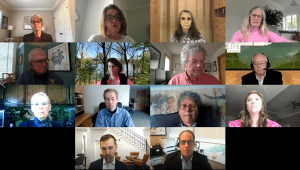 You can access the recordings of all the symposium sessions at the button below. Video vignettes spotlighting insights from stakeholders are also available and perfect for sharing with your networks. Reach out to Amy Goldstein if you are interested in creating a collaborative vignette.
You can access the recordings of all the symposium sessions at the button below. Video vignettes spotlighting insights from stakeholders are also available and perfect for sharing with your networks. Reach out to Amy Goldstein if you are interested in creating a collaborative vignette.
Be sure to complete the very short post-survey (5-10 minutes) after you’ve watched even just one recording. This is how we gather input for future webinar topics and other details. Also, watch your inbox for announcements on upcoming webinars on topics of interest.
Connecting the Dots
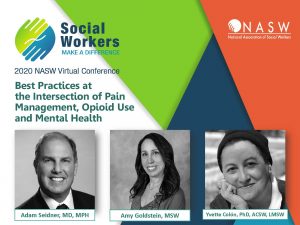 AACIPM is appreciative of the partnership with the National Association of Social Workers (NASW) as we find ways to implement our shared priorities to increase awareness about CIPM. One example is the AACIPM-led symposium as part of the 2020 NASW Virtual Conference on June 15th-17th.
AACIPM is appreciative of the partnership with the National Association of Social Workers (NASW) as we find ways to implement our shared priorities to increase awareness about CIPM. One example is the AACIPM-led symposium as part of the 2020 NASW Virtual Conference on June 15th-17th.
The NASW conference featured a 90-minute symposium from AACIPM, Best Practices at the Intersection of Pain Management, Opioid Use and Mental Health, which included Adam Seidner, MD, MPH; Yvette Colon, PhD, ACSW, LMSW; and Amy Goldstein, MSW. They highlighted efforts to reduce stigma and improve access to quality care for individuals living with pain. The presentation emphasized the importance of understanding the unique needs of people with chronic pain, mental health disorders, or opioid or substance use disorders.
Announcements
 From Chronic Pain Research Alliance
From Chronic Pain Research Alliance
An international survey project – led by Dr. Beth Darnall, Andrea Anderson and Dr. Maisa Ziadni – is being conducted to collect information from patients, healthcare professionals and researchers regarding their experiences and opinions on the term ‘pain catastrophizing.’
The team aims to collect broad stakeholder feedback on this topic and, depending on their findings, potentially put forward an updated term that is both patient-centered and acceptable for medical use.
The survey takes about 10 minutes to complete and will be active until July 7, 2020.
July 13 Deadline: Request for Input into National Center for Complementary & Integrative Health’s (NCCIH) New Strategic Plan
The NCCIH, is undergoing the development of a 2021–2026 strategic plan and are seeking public feedback. This involves evidence-based complementary and integrative treatment as part of multimodal, multidisciplinary pain care. AACIPM will be submitting comments so please reply to this email if you have input to share as this is being crafted. Click here to read about their 5 key strategic objectives and offer comments by July 13, 2020.
COVID-19 support registry developed for integrative practitioners
Integrative and complementary medicine practitioners are among those providing supportive care during the novel coronavirus (COVID-19) pandemic. To help track these efforts, the National University of Natural Medicine with leadership from its Helfgott Research Institute in Portland, Oregon, established a Traditional, Complementary, and Integrative Health and Medicine COVID-19 Support Registry. Read more here
 AACIPM at Work
AACIPM at Work
Ahead: September is Pain Awareness Month
AACIPM will be collating and promoting important resources during the month of September for people with pain, healthcare providers, purchasers, payers, and policy makers. More information coming soon.
If you have resources to share that belong in this resource, please send to info@painmanagementalliance.org.
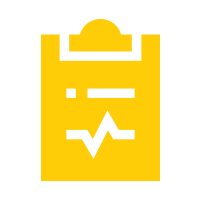 Relevant Reading
Relevant Reading
- Pandemic Presents Unexpected Opportunity to Embrace Multimodal Analgesia and the Integrative Care Team, Practical Pain Management, June 24
- AMA: ‘CDC Guideline Has Harmed Many Patients’, Pain News Network, June 19
- 83% Of Patients Had Fewer Migraine Headaches After Doing Therapy, Forbes, June 12
- Meditation app improves pain management at Hartford Hospital, Healthcare IT News, June 10
- How WWE Hall of Famer Mick Foley smiles through his chronic pain, ESPN, June 10
- New Tech Delivers Needed Options for Treating Pain, Managed Healthcare Executive, May 22
- Managing patients with chronic pain during the COVID-19 outbreak: considerations for the rapid introduction of remotely supported (eHealth) pain management services, Pain, May 2020
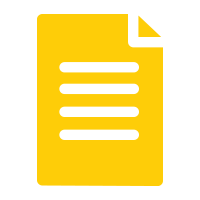 Resources
Resources
- Anesth Analg – Emergence From the COVID-19 Pandemic and the Care of Chronic Pain: Guidance for the Interventionalist
- Agency for Healthcare Research and Quality (AHRQ) – Effective Health Care Program
- American Academy of Pain Medicine (AAPM) – Pain Treatment Guidelines
- Accreditation Association for Ambulatory Health Care (AAAHC) – Pain Management Toolkit
- HHS – HHS Guide for Clinicians on the Appropriate Dosage Reduction or Discontinuation of Long-Term Opioid Analgesics (Download the PDF)
- NCIPM – Breathing Techniques for Pain, Stress, Asthma, Anxiety and More
- painTRAINER – Interactive, online program based on scientific research
- HealthFlix Online – Self-isolate without isolating yourself
Message from the Director
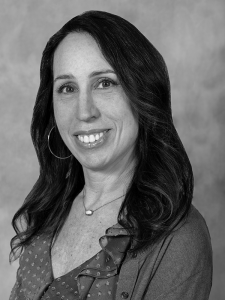 I remain steadfast and encouraged by the impact of our collaborative work. AACIPM continues to build momentum to advance CIPM, as we coalesce key stakeholders and shared priorities to improve access to quality pain care for all.
I remain steadfast and encouraged by the impact of our collaborative work. AACIPM continues to build momentum to advance CIPM, as we coalesce key stakeholders and shared priorities to improve access to quality pain care for all.
To that end, this issue includes very important spotlights that are must-reads. One is an interview with Dr. Sharad Kohli, a family physician at an FQHC, about care for people with pain in the safety net – and what we can do about it. Another spotlight includes an excellent article in NEJM Catalyst from a team at Duke – highlighting barriers to the uptake of integrated pain management – and again, what we can do to address these challenges.
I’m also very excited about the video vignettes that are now available (see symposium page). These short video recordings include pearls of wisdom from experts in our May symposium’s closing panel – challenging each of us to act now and work together to change the paradigm in pain care. I hope you’ll take a few minutes to peruse all the offerings in this newsletter and share with your networks. I also welcome any conversations to help identify with you the most effective way to connect meaningfully with AACIPM’s mission.
Alone we can do so little; together we can do so much. – Helen Keller
Onward and Upward!
Amy
Feedback
We welcome your input! What do you like? Do you have a contribution for an upcoming newsletter? Send us your comments, suggestions, or contributions.
